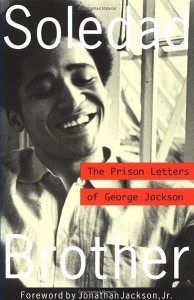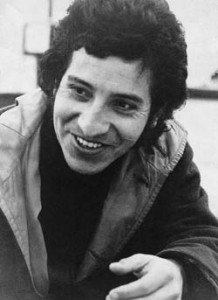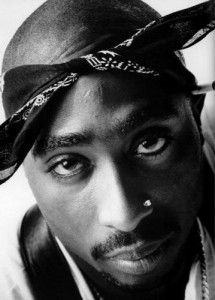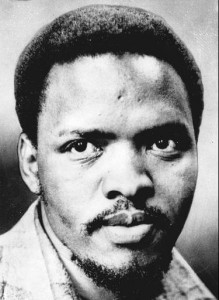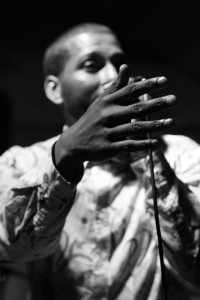Jasiri X interview
- September 29th, 2010
- By djmutiny
- Write comment
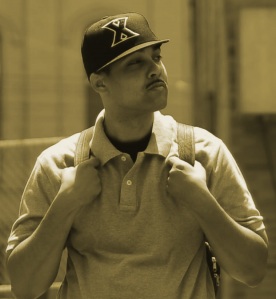 Take a few minutes to read this in-depth interview with the very talented revolutionary rapper Jasiri X, which appeared on examiner.com a few days ago.
Take a few minutes to read this in-depth interview with the very talented revolutionary rapper Jasiri X, which appeared on examiner.com a few days ago.
Gone are the days when rappers actually had something of substance to say when they picked up the microphone. The late 80’s and early 90’s were filled with Hip-Hop acts that raged against the machine while most of today’s acts are simple and overly hedonistic. I guess everything is all good.
Pittsburgh MC Jasiri X is a throwback to acts like Public Enemy, Ice Cube, Paris, and X-Clan. His lyrics are not about being combative but more about doing the right thing. With rhymes steeped in factuality Jasiri X is a breath of fresh air to Hip-Hop in 2010.
I spoke with Jasiri X about the Tea Party Movement, police brutality in the inner city, his upcoming album Ascension, and why Gucci Mane and Waka Flocka Flame are part of a modern day minstrel show.
SS: I first heard of you from your song What if the Tea Party was Black? Talk about why you decided to record that song and explain the meaning behind it.
Jasiri X: It really came from a conversation that I had with Paradise the Architek from X-Clan. He sent me an article written by a gentleman named Tim Wise. The article basically said, imagine if the Tea Party was black. I read the article and I thought it was decent. I saw Paradise later on and he asked me about it. I said it was cool, and he said that it would make a great song. I was like, “Wow, it would.” At that point in time it was instantaneous and I just started writing.
The purpose was to show media bias. It wasn’t about the Tea Party as much as it was about how they’ve been covered. It’s interesting to me when you hear them talk about revolution and see them with guns. We know the history of our revolutionary organizations and how the government conspired to destroy them, but what if black people decided to march on Washington with guns? How would they treat us? We know it would be a lot harsher treatment than the Tea Party gets. I’m somebody that always analyzes and studies the media. It was right along the lines of what I like to do as far as exposing the biases that I see in the media–especially when it comes to our people.
SS: Race has been in the news recently with people like Shirley Sherrod, Jesse Jackson, and Mel Gibson making headlines. Recently I had a discussion with my 15-year old cousin concerning Jesse Jackson’s allegation that Cleveland Cavaliers owner Dan Gilbert had the mentality of a slave master. My cousin said, “Why are people still talking about slavery? Why do people still bring up race?” I’ve heard similar comments from people of all colors recently but it shocked me coming from a young black man. What would you say in response to my cousin’s questions about why race and slavery are still brought up in 2010?
Jasiri X: Wow. I would talk to him about how race matters. It’s sad because you would think that in 2010 we would have witnessed Dr. King’s dream by now. Especially with the election of President Obama, we would have moved beyond it. What you see with the election of President of Obama is it’s gotten even more racial. I’d talk to him about Oscar Grant because everybody missed that when LeBron James made his decision on ESPN. Grant was a young brother in Oakland who was shot point blank in the back on video tape. The officer was charged with involuntary manslaughter. I would show your cousin how statistics say that young black men born after 1991 have a 91% chance of going to jail at least once in their life. The percentage for white people is just 5. I’d talk to him about graduation statistics and employment statistics. Even today when we go before a judge after committing the same crime we get longer sentences than white offenders. The reality is, race is still a problem.
Here in Pittsburgh we were called America’s most livable city. At the same time a report was issued saying that we have the poorest black community of any of the major cities in the United States. Black children under 5-years old are poorer in Pittsburgh than anywhere else in the United States. That’s the disparity right there. If your cousin lived in the hood I’d say look at your neighborhood and ask why is it not like the neighborhoods of others.
SS: He does live in the hood! He’s on the west side of Chicago and it’s serious over there…
Jasiri X: Wow. Oh yeah. I’m originally from the south side so I understand. I would say look around your own neighborhood, you know?
SS: Tell me about the American History X mixtape that you dropped a few months ago.
Jasiri X: The idea came about from watching the movie. The movie deals with race which is a topic that I deal with often. The white student writes a History paper about Hitler and the black principal takes him into the office and says, “I’m your history teacher now, our topics are going to be about current events, and the class is going to be called American History X.” This Week is a video blog where I was dealing with a lot of current events and issues–the mixtape was right along those same lines.
SS: Earlier you mentioned Paradise the Architek; how did you hook up with Paradise?
Jasiri X: Man, just found out he lived in Pittsburgh! I’m someone who is definitely inspired by X-Clan. We ended up hooking up but what’s interesting is when we did it wasn’t about rap. Paradise is someone who has a tremendous love for our people. He’d call me every time a young person lost their life in Pittsburgh and ask me, “What are gonna do?” We ended up getting with some other young brothers who love Hip-Hop and love working with young people and formed a group called 1 Hood.
After organizing with 1 Hood and doing the anti-violence things in Pittsburgh we got to the music. I almost gave up Hip-Hop because I didn’t think people wanted to hear conscious rap. It changed for me when I wrote the song Free the Jena 6. It ended up being played all over the country and Michael Baisden was the catalyst for that. I ended up in Jena and people responded well to the song saying it touched their lives. It showed me that people really wanted to hear Hip-Hop with substance and a message. That’s when Paradise and I really started working on music together.
SS: Going back to the era when X-Clan came out, acts like X-Clan, Public Enemy and Brand Nubian were at the forefront of rap, now acts like that you won’t see on BET. Why do you think that’s changed in less than 20 years?
Jasiri X: The powers that be of the industry will say outright that that music doesn’t sell. A group like Little Brother who you might not even classify as conscious, I would say they’re conscious or have intelligent music; BET wouldn’t play their video because they said their music was too intelligent for their audience. I think what happened was this industry created a formula for a hit record. People began focusing on making hit records instead of music that inspires and educates. It was like if you don’t fit into this formula that equals hit we aren’t going to support you. The industry is saying we won’t invest in you because you won’t be this big monster hit. This is actually why we started putting our videos on YouTube to show that people want to hear this type of Hip-Hop. It’s good to be able to negotiate a contract and say we have a half a million views on YouTube and people want to hear this type of music.
If you look at the history of the representation of black people in the industry and the media its always been this negative portrayal. It seems to me that now the industry says we only want two representations of black men. Either you’re this unintelligent gangster super thug or you’re this effeminate non-threatening person with super tight jeans. It seems like the media has always had a problem with an intelligent strong black man. Women have it worse. If they don’t want to get buck naked they don’t have a place for you in this industry. This is why me, Paradise, and others have said that we’ll do it independently. There is a market there. There are people that want my music, there’s people that want good conscious Hip-Hop with a message. Look at what’s happening to the industry, it’s collapsing on itself because it’s not producing real good music that people want to listen to. What really destroyed Hip-Hop was when people went into the studio and tried to make hit records instead of making good quality music. What you get out of that is junk. You get a whole bunch of attempts at a hit record and they’re terrible. I took the opposite approach and said I want to make quality music that has an impact and talks about what’s happening.
You’re in Chicago the violence is off the chain! Violence, poverty, the recession, the intense attack on President Obama; all these issues we have and we’re still talking about making it rain? We’re talking about swag? I tend to also get mad at Hip-Hop fans because the fans don’t demand real good music. If the industry is pushing you the fans will accept you. We’ll accept Rick Ross even though we know he’s lying. We know he was a C.O. and he wasn’t a big time hustler. We accept it because the industry is pushing it.
SS: I interviewed Scoop Jackson from ESPN and I asked him why Hip-Hop changed from conscious rap to mostly gangsta rap. He said Hip-Hop didn’t dictate that but the people did. He said in the late 80’s and early 90’s Louis Farrakhan, Jesse Jackson and Al Sharpton played a much bigger role in the community then than they do now. There is no so-called black leader now so the rappers are a reflection of the people…
Jasiri X: I love Scoop but that’s just absolutely ridiculous. The reason I say that is because I live in the hood. Everybody is not a killer. Everybody is not selling drugs. When you analyze it, it’s a small segment of the people in the community living that life. It’s not everybody. I was just in London Homes; I got a lot of family there. Are there people there doing what they gotta do? Yeah. Sure. But it’s not everybody that lives there. What happens is it’s glamorized. At 1 Hood we walked the worst neighborhood in Pittsburgh called Homewood. Before we started walking it was five shootings in a 21 hour period– a three and a four-year old got shot. We said enough is enough, black men we’re going to get together and walk these streets. What we found out was it really wasn’t that bad. There were a couple of trouble areas but it’s not what’s portrayed. My thing is, yeah we have violence and hustling in the hood but definitely not at the level that these rappers talk about.
SS: On the block that I grew up on there was crime, but there was literally like two houses that people sold drugs out of. Everybody else on the block went to work every day and minded their own business.
Jasiri X: [Laughs] Exactly! Did what they had to do to survive.
SS: Drugs bring guns, people who use drugs steal, and it’s a never ending cycle…
Jasiri X: It’s definitely a vicious cycle. What we saw in Pittsburgh is a change in the policing. It went away from a community policing where people knew the officers and they were from your community. Most of the people that police our communities are white. They’re these hyper ex-soldier type guys that come from the suburbs and rarely have interaction with black people therefore there is no relationship there. That’s why they’re pushing for people to snitch. It used to be where people in the community had a relationship with the police and would talk to them.
An honor student in Pittsburgh named Jordan Miles was beaten severely by the police. He looked like Emmitt Till. He had his locks ripped out of his head. He’s an honor student and a violinist who played for Michelle Obama when she visited Pittsburgh. He was just walking to his grandmother’s house and some undercover cops jumped out on him so he ran. He didn’t know they were cops and they gave him the beat down. The police are defiant in the face of that and the head of the F.O.P says they followed their training. They charged this young brother with resisting arrest and he’s an honor student who never had any history with the police–as if beating him down and ripping the locks out of his head wasn’t enough. Look at the history of America, sex and violence is what America is founded on and what America loves to digest.
SS: I haven’t been stopped by the cops in a while. I’m 34-years old but when I was a teenager I was stopped constantly. It was always humorous to me because I was never in any kind of trouble but the house across the street from me was flooded with drug dealers and the police never bothered them. A lot of these cops work with drug dealers. They take payoffs or shakedown these small-time dope dealers so they aren’t concerned about policing the community. Earlier you mentioned that there should be more black police officers in black neighborhoods but in my experiences the black cops are way worse than the white ones. So how would you propose to change this?
Jasiri X: Yeah, yeah. You’re absolutely right. Pittsburgh was one of the first cities they used the RICO Act on. To talk to those brothers who were victims of that they didn’t get hit until they actually stopped selling drugs [laughs]. I think ultimately what we have to do is begin to police our own communities. It’s like education; do I send my child to this school that really doesn’t care about my child? Or do I take it upon myself to home school my child? We’re being pushed to do for self and practice self sufficiency. Ultimately it’s our neighborhood. On the block that I live on if I see someone breaking into my neighbors’ house I have a responsibility to say, “Nah, you’re not breaking into my neighbors’ house,” because the next house you’ll break into is mine.
The solution is we have to organize block by block and community by community to say we’re going to watch out for one another. Sadly people are afraid to approach these young brothers–they’re approachable. You can say, “Hey, on this block right here we’re watching out. It might be wise to leave us alone.” At the same time our tax dollars pay the salary of the police. With this organization 1 Hood we went up against the police a few times. When we first went up against the police an officer pulled a gun on a 7-year old girl and said he was going to blow her brains out. There were five witnesses to this account. What they tend to do is drag the case out and what we tend do is get real hype when it first happens and then go back to sleep. We have to begin to organize for the duration and hold the police responsible for what they’re supposed to do. What happened was the mother was charged with disturbing the peace because she was calling on Jesus to save her from the wicked police officer. They ended up dropping the charges against her but the judge said he did not believe that this officer would do something like that even though there were five eye witnesses. Less than a year later that officer shot and killed a mentally disturbed man. When we go and speak we bring that stuff up. We have to hold the officers accountable for the jobs they’re supposed to do and not be afraid to do that as well.
SS: Back to the music, I heard a song of yours called Blackface and another song called Just A Minstrel. How do you differentiate between someone having fun and being themselves versus someone putting on a minstrel show?
Jasiri X: Being yourself, are you really being yourself? To me that’s the $64 million dollar question. I read in XXL magazine that Gucci Mane had an academic college scholarship for computer science. So when we see Gucci Mane playing this role is he being himself? Obviously this dude is super-intelligent. Lil’ Wayne is very intelligent. When you see them acting out like this are they being themselves? I would say no. T-Pain? No. They’re playing a character. When they get caught and get on that witness stand like The Game you can tell. The Game’s lawyer said, “Do not call my client a gangsta rapper. That’s not what he is.” They’ll get on that stand and say that’s not really me, I’m playing a character.
Why is it that the character that they’re playing resembles a minstrel act from the 1920’s and 30’s? Why can’t you being an intelligent man reflect that in your music? If Gucci Mane would be goofy in one video and an intelligent business man in the next I would say OK, in this video he’s having fun and in this video he’s handling business. If in every video you’re showing all your teeth and high on pills that’s not real. Especially when you’re going in front of the judge and talking about how you want to change your life and be a role model.
SS: Waka Flocka Flame…
Jasiri X: Lord have mercy.
SS: [LAUGHS] He got into some minor verbal thing with Method Man. One of the things he said was that people don’t want to hear intelligent lyrics, I’m paraphrasing but that’s basically what he said. I’ve actually never heard one of his songs..
Jasiri X: You don’t want to hear it [laughs].
SS: I don’t think that guy is playing a character. I think that’s really him.
Jasiri X: No. To understand who Waka Flocka Flame is… Do you know who his mother is?
SS: No.
Jasiri X: His mother managed Gucci Mane and Nicki Minaj. How hard did you have it if your mom is managing Gucci and Nicki Minaj? You got some money now! That’s the mentality that the record labels have. The record label will say Soulja Boy had a million hits, did a dance, and sold some records so in their mind this is proof that people don’t want to hear lyrics anymore, but explain the success that Jay-Z and Eminem have. To me that’s a cop out. This is somebody who has no respect for the culture of Hip-Hop. He just wants to make money. His mom is managing Gucci so he can get Gucci and Nicki Minaj on a song so it’s like why not put some songs out there and you can make money too. He didn’t have to go through what most rappers have to go through to get on.
Even if you were the hood rapper you have to have some skills. You have to be able to say some rhymes to make the people in the hood say, “That’s him–he’s the one.” He never had to go through that. Because of how he got on and how quickly he got on he doesn’t have the same appreciation and respect for the culture and the music because he didn’t have to pay those dues. He’ll go out as fast as he came in–just watch. People that have an easy time getting on don’t last long. Look at the stories of Jay-Z, Eminem, and Diddy. They had a hard road, they fought. Every record label turned Jay-Z down and he financed his own record. They worked hard just to get their foot in the door. Their grind level is different.
We have an artist here in Pittsburgh named Wiz Khalifa. I’ve known him since he was 16-years old and when I met him he was dead set on being a professional Hip-Hop artist. He had a mindset like a 25-year old. He was in the studio back then, he wasn’t playing the block. He signed with Warner Bros, it didn’t turn out like people thought it would and it made him grind even harder. There was a time in Pittsburgh when there was a hate campaign for Wiz. He used to have to have a bodyguard.
SS: Why?
Jasiri X: It was two reasons. He’s young and his management is young. They made a mistake by marketing him as the only thing that’s happening in Pittsburgh. He also had a couple of street type songs. A lot of the rappers are heavy in the streets and they had a problem because they knew he wasn’t heavy in the streets. Wiz just hadn’t found himself yet and now he’s found himself as an artist. His management learned from those early mistakes. They reached back to Pittsburgh and when Wiz comes back to the city he’s like the Steelers now. It wasn’t easy and that dude went through a lot. I think he’s going to have a longer career than these dudes who just got a co-sign from a big star to get on. Wiz built his own machine and he’s going to be around a lot longer because of what he went through that I witnessed first hand.
SS: Talk about the album you have coming out.
Jasiri X: I’m really excited, it comes out in January. It’s really to me my first real album. American History X is a good album and we got the Pittsburgh Hip-Hop album of the year award but it was more like a compilation of my episodes. What you’ll find on American History X is me talking about things going on around the world and things that affect us. This is the first album where I get to get a little more into myself and just spit on some stuff. I put a couple songs out where I just spit and I’m nice with it. I can spit on this mic. It’s produced entirely by a producer named Rel!g!on out of Vancouver, Canada. He did a song last season that was very popular called Silent Night. I got with him and this new company called Wandering Worx — myself and Planet Asia were the first acts signed to it.
I’m just excited about an album that’s separate from me doing political stuff. As an artist you get more of a wider range of me on the album. It’s called Ascension. When we do the This Week with Jasiri X series we do nine episodes, nine weeks straight. So it’s nine new songs and nine new videos. I pushed myself to a point where I was ready to give up. It was like boot camp times fifty. I edit the videos too so I wasn’t sleeping at all. We kind of changed it up this year. It was a dark time for me so Ascension represents me coming out of that and finding the love for Hip-Hop again. I had to get off Twiter and Facebook and just wrote. Rel!g!on is a super producer as far as his beats and I’m really excited about people hearing it.
If you haven’t already done so, be sure to check out Jasiri’s classic ‘What if the Tea Party was Black?’

